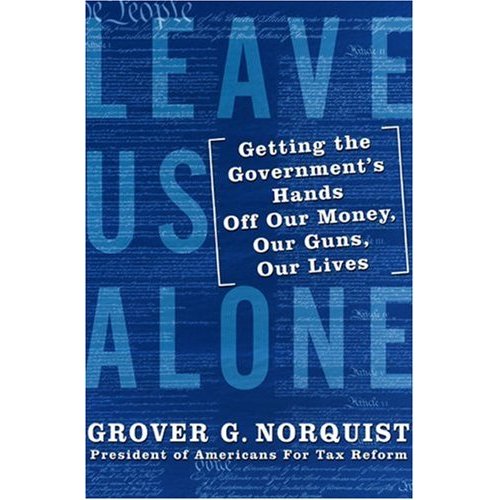Does this mean the tide is turning? Not really. It just reminds me that it is still far too early to call the race. I need to think positively--I've been reading too much of the morose Andrew Sullivan
New book: I bought Grover Norquist's Book Leave Us Alone: Getting the Government's Hands Off Our Money, Our Guns, Our Lives. He describes gay Republicans thusly:
Gay Americans who simply want to be left alone recognize that the modern center-right movement has no agenda to outlaw homosexuality or use the power of the state to tax or attack gays. Gay Americans who are also homeowners, businessmen, shareholders, gun owners or men and women of faith will find the modern left ready, willing and able to tax, regulate and attack them--not as gays--but as income earners, property owners, gun owners, etc.
That nicely complements my view: why does being gay have to change my views on unrelated issues like guns, taxes, national security, or abortion. Why does gay marriage, to which I am personally indifferent, (or even civil unions, which I support but much of the gay othrodoxy decries as insufficent) have to become my top priority litmus test issue?

 Goldwater bemoans a Republican Party that in practice is almost indistinguishable from the Party it opposes. The Gentleman from Arizona warns that the cavalier disregard of the Constitution replaces the rule of laws with the rule of men. He fears the expanse of government because the natural course of government is to oppress the governed.
Goldwater bemoans a Republican Party that in practice is almost indistinguishable from the Party it opposes. The Gentleman from Arizona warns that the cavalier disregard of the Constitution replaces the rule of laws with the rule of men. He fears the expanse of government because the natural course of government is to oppress the governed.



